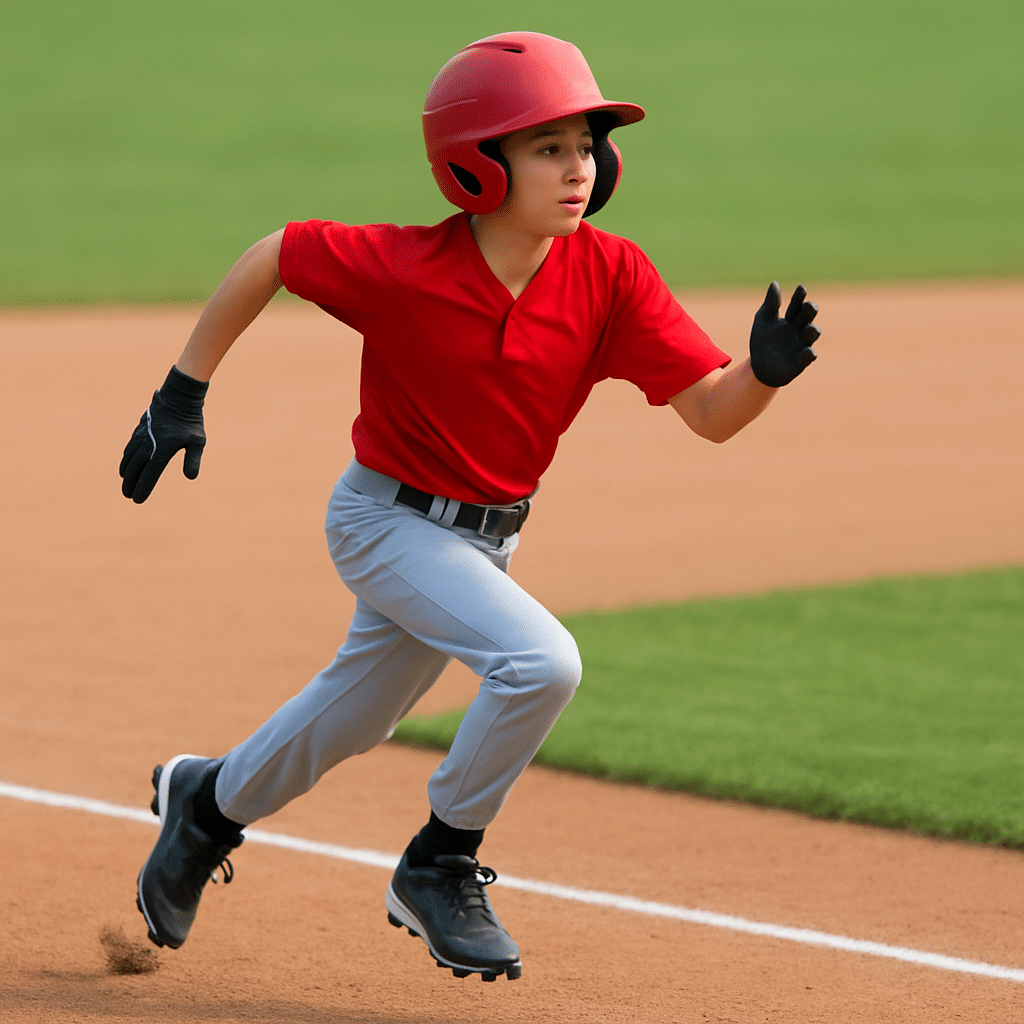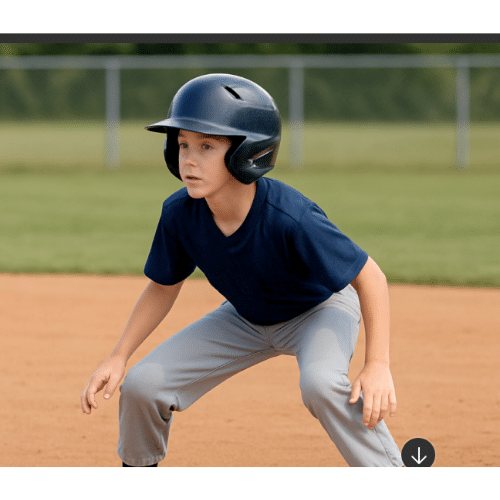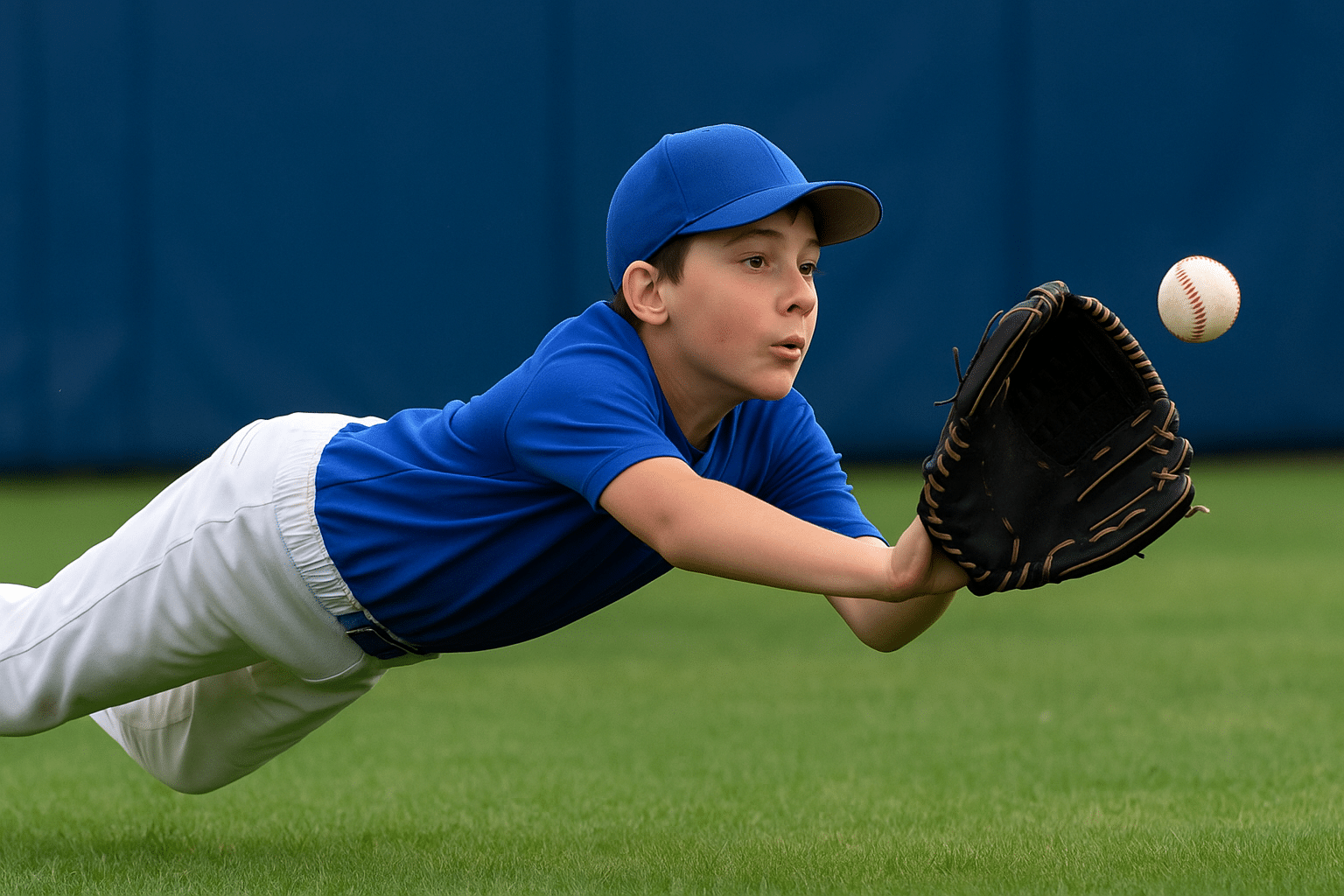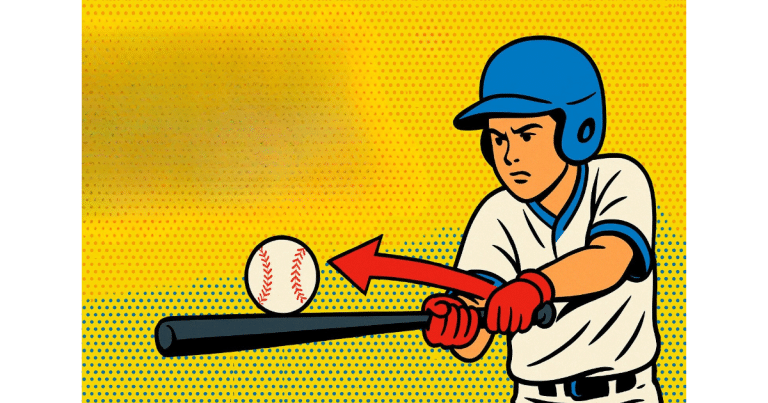Why Hustle Is the Most Underrated Skill in Youth Baseball
It’s the bottom of the sixth, two outs, tie game.
A chopper dribbles up the third-base line—easy out, right?
Not if the hitter is sprinting like their hair’s on fire.
The rushed throw sails, the winning run scores, and the box score records it as an error. Insiders know the truth: hustle created that chaos.
As the saying goes, “Talent gets you noticed. Hustle gets you remembered.”
Hustle is often the difference-maker in close games and evenly matched teams.
It can create extra outs, extend rallies, and put pressure on opponents.
Moreover, hustle is a habit that carries over into other areas of life, teaching young athletes the value of persistence, discipline, and hard work—qualities that are essential for success both on and off the field
Why Hustle Gets Overlooked
It’s not flashy. It’s not on a stat sheet. But hustle changes everything.
When effort fades, here’s what usually follows:
Bad habits form fast – If kids learn it’s okay to cruise through plays, that mindset sticks. And it’s hard to undo later.
Missed chances – Jogging to first might not seem like a big deal, but that half-speed effort means giving up chances to turn a grounder into an error or sneak an extra base.
Team energy dips – One kid jogs, and the rest start to follow. Suddenly the whole team looks tired—even if they’re not.

Hustle Habits That Can Change Games
1. Run Everything Out
Whether it’s a weak grounder or a deep fly, the rule stays the same: run hard.
Every time. Not because it looks good—but because it creates chaos and earns extra bases.
Player Tip:
Act like there’s a stopwatch at first base. Try to beat your best time every trip down the line.
Coach/Parent Cue:
Pick five random reps each week and time them to first. Post a fun leaderboard or make it a challenge. Don’t just celebrate the fastest kid—celebrate the most improved.
✅ What It Teaches: Accountability, consistency, self-competition.

2. Back Up Every Throw
Most young players think backing up is boring—until an overthrow turns a single into a triple.
Drill It:
During fungo or infield reps, assign a “shadow outfielder” whose only job is to back up throws at different bases.
Rotate roles and give effort scores, not just fielding grades.
Coach Cue:
Make it visual. Stop the drill when a backup isn’t there and talk it through.
Praise kids who sprint into position—even when the ball doesn’t get past the glove.
✅ What It Teaches: Anticipation, situational awareness, team-first mentality.

3. First-Step Readiness
Great players aren’t just fast—they’re ready before the play starts.
A good first step creates range and makes average athletes look quick.
Ready-Bounce Drill:
As the pitcher begins their delivery, players do a light hop into a ready stance—knees bent, feet active, eyes forward.
Think volleyball, not statues.
Coach/Parent Cue:
Use freeze moments during scrimmage: “Were you moving when the pitch left the hand?” If not, rewind it. Try again.
✅ What It Teaches: Reaction timing, positioning, defensive hustle.

4. Quick Dugout Transitions
Nothing slows a game down—or kills energy—like kids strolling on and off the field.
Gamify It:
Time the team between innings. Under 15 seconds?
They earn “Fast Team” status and a running tally for the season. Add a prize if you want—like picking warm-up music.
Coach Cue:
Set the expectation: hustle isn’t just for live plays. It’s how you move, how you transition, how you show you’re locked in.
✅ What It Teaches: Tempo, awareness, collective energy.

5. Communicate with Urgency
Effort isn’t only physical.
Clear, loud communication prevents mistakes and boosts confidence—especially when players commit to it.
Player Tip:
Call the ball early and loud. “I got it!” isn’t just polite—it prevents crashes, confusion, and dropped outs.
Coach/Parent Cue:
Run “volume drills” where players must call out who’s got the ball—and grade based on clarity, not correctness.
Reward the right habit, even if the play fails.
✅ What It Teaches: Leadership, teamwork, game presence.

Gear & Tools That Reinforce Hustle
| Tool | Why It Helps | Quick Use Case |
|---|---|---|
| Speed & Agility Ladder | Builds foot-speed and coordination | 5-minute warm-up: in-out hops, crossover steps |
| Portable Radar Timer | Turns sprinting into a measurable stat | Clock home-to-first weekly |
| Lightweight Turf Shoes | Easier on growing joints than metal spikes during drills | Rotate in for conditioning days |
| Bounce-Back Net | Solo rep machine—grounders, pop-ups, quick reactions | Perfect for “back up the play” drills |
Frequently Asked Questions
Does hustling increase the risk of injury?
Not usually—especially when taught correctly. In fact, clean sprint mechanics and proper warm-ups can help prevent injuries. The key: dynamic stretching, controlled deceleration, and reinforcing good form over blind speed.
My kid’s quiet—how do I get them to speak up on the field?
Start with one consistent cue like “Ball!” or “Mine!” and reward effort, not volume. Confidence grows when it’s reinforced. Some kids lead with voice, others with hustle—both are valuable.
What’s a normal time to first base for 12-year-olds?
Anywhere between 4.5 and 5.0 seconds is common. But don’t stress the number—focus on shaving time, improving form, and running with purpose.
Any tech that tracks hustle?
Wearable GPS pods (Catapult, Blast Motion) log distance and intensity—great for high-schoolers.
What if coaches don’t value hustle?
That’s okay—your player should still care. Hustle turns singles into doubles and puts pressure on the defense. And even if it goes unnoticed today, it builds habits that last.
How do I correct jogging without sounding negative?
Make it a challenge, not a scolding: “Let’s race the clock next time” or “Think you can beat your last time by half a second?” Turn effort into a game and watch the habits stick.
Closing: Turn Effort into Edge
Hustle is the most underrated skill in youth baseball because it is not a technical ability but a mentality that can be taught, practiced, and rewarded.
It impacts every aspect of the game and sets the foundation for both individual and team success.
You don’t have to scream to teach hustle. You just have to create reps that reward effort, talk about it often, and make it part of how your team plays.






